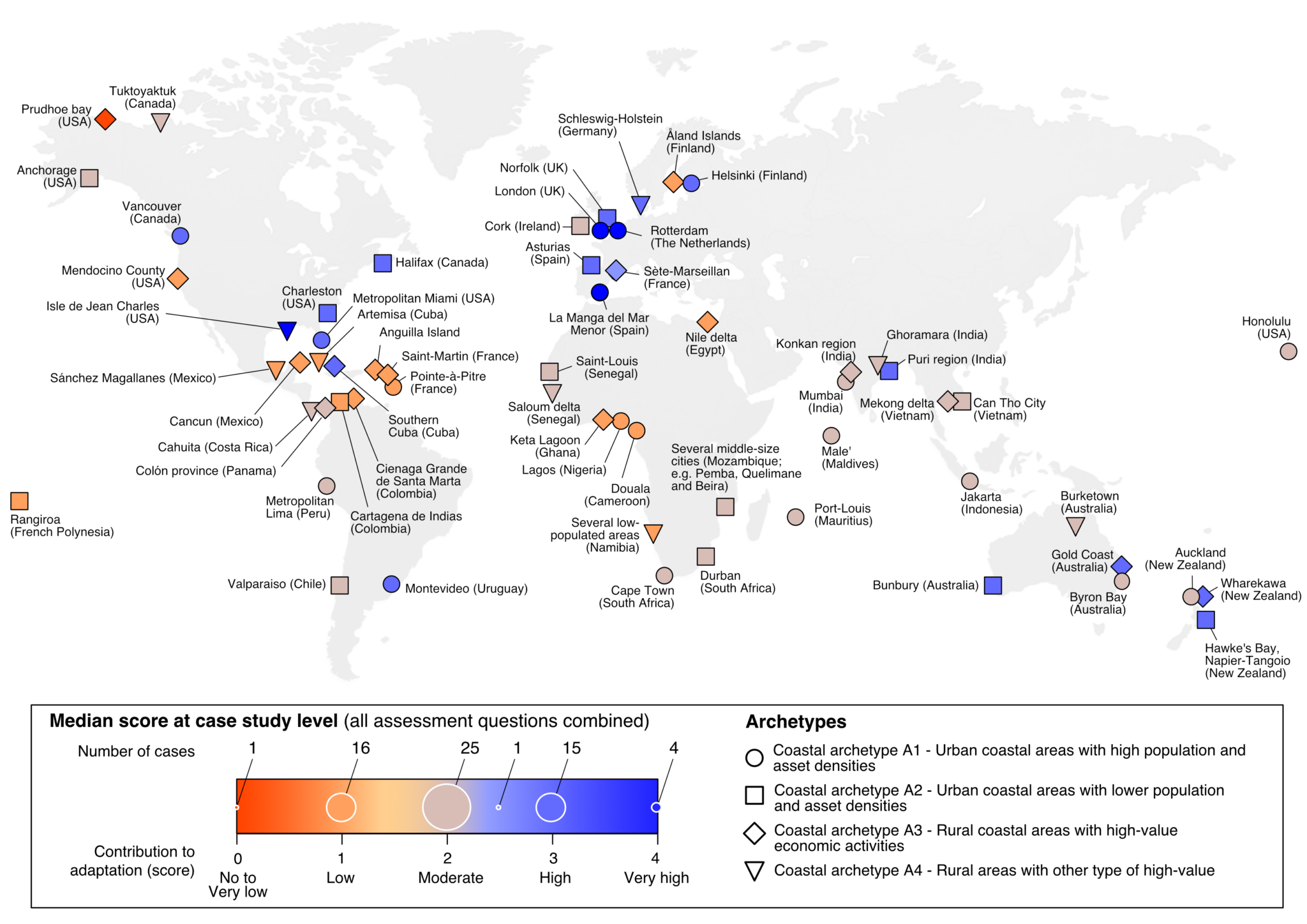A study in which IHCantabria participates highlights the urgent need to adapt the coastline to climate change
A groundbreaking study published today in the journal Nature Climate Change sheds light on the current state of global coastal adaptation efforts. The research, entitled ‘Status of global coastal adaptation’, was conducted by an international team of experts led by Alexandre K. Magnan, of the French institute IDDRI, and included contributions from 17 scientists and experts, including Professor of Hydraulic Engineering of the University of Cantabria (UC) and Director of Research at the Institute of Environmental Hydraulics of the UC (IHCantabria), Íñigo Losada.
The work is part of the Global Stocktake initiative that aims to analyse in a transparent manner the collective progress towards achieving the goals set out in the Paris Agreement.
In contrast to ongoing analyses of the state of adaptation, which are generally based on national plans, this research provides a multidimensional and locally grounded assessment, offering valuable insights for international climate negotiations. Their results have significant implications for understanding the approach and efforts to adapt to climate change in coastal zones on a global scale; this is critical because climate risks are expected to increase significantly globally in the coming decades. The objective of the study has been to assess the progress of adaptation efforts worldwide, using a methodology based on the judgment of experts who have been involved in adaptation processes in urban or rural coastal environments, allowing for a qualitative assessment of the various dimensions that shape adaptation.
The paper examined sixty-one case studies, with a local experience-based perspective on the state of global coastal adaptation. Both extreme events and low-intensity climate change were analysed, including coastal erosion, marine flooding, sea level rise and extreme events, soil and groundwater salinization, inland flooding caused by heavy precipitation, and permafrost thawing.
IHCantabria’s contribution has been based on its own experience in coastal adaptation plans, providing 2 studies in Spain (Asturias and La Manga del Mar Menor) and 6 studies in Latin American countries (Cuba (2), Uruguay, Chile, Peru and Panama) where the Coastal Adaptation Plan of the Metropolitan Area of Lima, with more than 10 million inhabitants in 120 km of coastline, stands out.
One of the main findings of this research is that, at present, global coastal adaptation efforts are only halfway to their full potential. While adaptation actions are being implemented in practice, they remain incremental, insufficient in scope and often incomplete.
Another important finding is that urban areas tend to score higher on adaptation efforts compared to rural areas. However, there is a wide variation in local situations in different regions of the globe.
Imbalances are also observed in the various dimensions of adaptation. While there is a good understanding of the risks, there are virtually no long-term strategies and there is a lack of evaluation of the effectiveness of the few measures implemented. This raises concerns about the lack of foresight in current adaptation efforts. In addition, adaptation efforts often focus on specific climate hazard factors, neglecting the broader underlying causes of climate exposure and vulnerability.
The study found no clear correlation between population size or geographic region and the level of adaptation efforts.
The co-authors of the article highlight the importance of scaling up adaptation policies and actions at the global level, involving local governments and stakeholders. Therefore, they encourage the reformulation of global adaptation objectives and the identification of shared priorities that transcend development levels. They suggest five global priorities for closing the adaptation gap, including improving local planning, advancing the adequacy of local actions related to climate risks, increasing local capacities, developing evidence-based guidelines, and supporting a long-term perspective in decision making.
In terms of implications for international climate negotiations, this research provides an important knowledge base and calls for setting adaptation targets that are practical, realistic and transparent, emphasizing the need for assessments that consider multiple socio-geographic systems and sectors. It is therefore an important contribution to the Global Goal on Adaptation (GGA) established in the Paris Agreement.
According to Íñigo Losada, co-author of the article, “this research serves as a crucial wake-up call, as it shows that, although some adaptation efforts are being made, they are not sufficient to address the challenges posed by climate change.” He stresses the need to adopt an integrative approach and prioritize long-term strategies to close the climate change adaptation gap.
Nature Climate Change
Nature Climate Change is a scientific journal that publishes research on the biological, geographical, and social implications of climate change. It provides insights into the ongoing challenges and opportunities associated with climate adaptation and mitigation.
For more information on this study, you can access the full article entitled “Status of global coastal adaptation,” in the journal Nature Climate Change: https://www.nature.com/articles/s41558-023-01834-x





